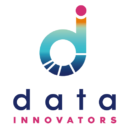Organisational learning is a process of detecting and correcting error and is a component of adaptive capacity and organisational effectiveness (Letts et al, 1999; Arygris, 1977). This process is also known as adaptive coping, which includes the “ability to detect complex patterns within events, identify causal relations between events, and intervene in events” (Van Tonder and Roodt, 2008).
Performance monitoring facilitates organisational learning and contributes to broader evaluative thinking (Taylor, 1998). Organisations with strong performance monitoring systems and structures, with teams that are able to interact with and learn from this data, are able achieve improved performance, efficiency, adaptability, and sustainability. However, many organisations do not use monitoring for this purpose. In NGOs, we and others (Gujiit, 2012) have encountered that the monitoring process is used more for accountability purposes than as an opportunity for reflection and learning.
In order for organisations to learn from M&E, learning has to occur at both the individual and collective level and be fed back into the system. This requires systems thinking and staff should be equipped with the necessary information, systems and processes to enable them to continuously question and review organisational processes. This process of questioning the underlying assumptions and objectives of a programme is known as double-loop learning.
The experience of ABC, an organisation working to improve literacy levels amongst primary school learners, demonstrates the value of critical thinking in organisational learning.
| ABC identified poor literacy teaching methods as a key reason for low levels of literacy amongst primary school learners. To address this problem, they ran a training and mentoring programme for teachers focused on improving their literacy teaching skills. However, regular reading and writing tests showed very little improvement in learner literacy. Thinking critically about their monitoring data, ABC project staff realised that learner assessments were were not a direct indicator of the efficacy of their intervention. Through research they found that external factors, such as the lack of school readiness amongst pupils and poor homework support from parents, acted as significant barriers to learning. Learning from these findings, ABC developed more relevant indicators to monitor teacher training success and also expanded their intervention to include pre-school teachers and parents. |
However, many social development organisations we have worked with have pointed out the gap they face in thinking critically about data and using it in decision-making. Without working on how your staff think about data, efforts to set up strong systems are futile.
Here is an exercise we find helps to think outside the data box.
Reflecting on just one indicator, answer the following questions:
- What does the indicator mean? Or what and why are we measuring it?
- How does it fit our context?
- What is the target and actual, over time?
- How can this be explained?
- What evidence supports this?
- What is the story it tells us?
- How does this relate to our Theory of Change?
Providing individuals and teams the opportunity to critique data in a similar way encourages a culture of learning within an organisation. Data Innovator provides training to M&E and other project teams on thinking critically about data. We recently ran one such training for an NGO using real-life scenarios and data. Giving staff the opportunity to step away from the usual M&E process and just think and talk about the data allowed them to connect the data with reality. The result was robust discussion between the M&E and programmatic teams about what the data meant and how they should act on it.

Look out for our next blog where we will look at an example of how one organisation used real data to better communicate the programmatic challenges they faced, and the solutions they set up to achieve this.
Other useful links:
- Organisational learning in NGOs
- Learning culture case study
- Learning in organisations: theory and practice
Author/s: Jerusha Govender
References:
Argyris, C. (1977). Double-loop learning in organizations. Harvard Business Review: The Magazine, September 1977.
Guijit, I. (2012). Accountability and learning: Exploring the myth of incompatibility between accountability and learning. In: Fowler, A. and Ubels, J. 2013. Capacity Development in Practice. Routeledge. Chapter 21.
Letts, C.W., Ryan, W.P., and Grossman, A. (1999). High performance non-profit organizations: Managing upstream for greater impact. John Wiley and Sons, Inc. New York.
Taylor, J. (1998). NGOs as learning organizations. Community Development Resource Association.
van Tonder, C.L., and Roodt, G (ed). (2008). Organization development: Theory and practice. Van Schaik, Pretoria.


